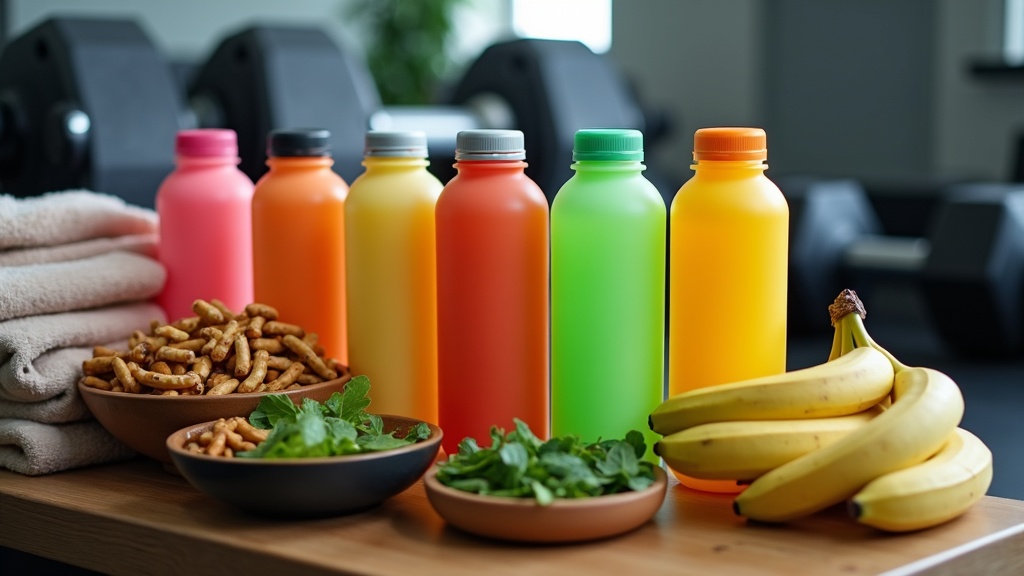Electrolytes might sound like a technical term you only hear in science class or see splashed across sports drink ads, but they’re actually super important for anyone active. If you play sports, run, bike, or even just go on regular hikes, you’re working those electrolytes hard, and they’re working for you, too. Here’s exactly how electrolytes affect athletic performance and recovery, plus some practical tips for keeping things in balance.

What Are Electrolytes?
Electrolytes are minerals that carry an electric charge and dissolve in water. In your body, they help keep fluid levels balanced, support muscle function, and enable nerves to fire like they’re supposed to. The main electrolytes include sodium, potassium, calcium, magnesium, chloride, phosphate, and bicarbonate. While they work together, sodium and potassium are two you’ll hear about most when it comes to sports and exercise.
Think of electrolytes as your body’s behind-the-scenes problem-solvers. They’re always busy, balancing fluids, keeping your muscles from cramping up, and basically helping you power through a workout or game without fading halfway in. There’s a good chance you’ve already stumbled upon them without realizing it, since they’re crucial for basic things like moving your limbs and feeling energetic. These charged minerals are a key reason why athletes can keep pushing through demanding routines and why hydration matters so much during long activities.
Why Electrolytes Matter for Athletes
If you’re sweating a lot, you’re not just losing water, you’re also losing electrolytes. That can throw off the balance in your body, affecting both performance and recovery. Here’s how electrolytes come into play during athletic activity:
- Sodium: Helps with fluid balance and nerve impulses. Without enough, you might get dizzy or feel weak.
- Potassium: Keeps muscles contracting smoothly. Low potassium means more muscle cramps and fatigue.
- Magnesium and Calcium: Both are involved in muscle contraction and energy production, so missing out can zap your strength.
Plenty of athletes have had moments after a long sweat session where they felt totally wiped, fuzzy-headed, or crampy, only to realize later they hadn’t replaced any lost electrolytes. Staying on top of this can make a difference that you really feel when you push yourself.
How Electrolytes Affect Athletic Performance and Recovery
Athletic performance isn’t just about training hard or eating well; your electrolyte status plays a serious role too. Here’s a closer look at what happens when electrolytes are in balance, compared to when they’re out of line:
Performance During Exercise
- Muscle Function: Electrolytes allow signals to travel to and from the brain to your muscles. When they’re depleted, your risk of cramping, twitching, and early fatigue goes up.
- Heart Rhythm: Electrolytes are vital for keeping your heart beating in a steady rhythm, which matters when you’re pushing your cardio limits.
- Focus and Reaction: A balanced mix sharpens mental focus and reaction time, so you aren’t slowed down or feeling “foggy.”
- Endurance: Keeping sodium and potassium topped off means you hold onto fluids better and don’t hit the wall as quickly, especially in longer events.
Recovery After Exercise
- Fluid Replacement: Electrolytes help rehydrate you more efficiently after a workout, getting water from your bottle right into your cells swiftly.
- Reducing Muscle Soreness: By keeping muscle cells fueled and hydrated, soreness and stiffness are easier to avoid.
- Preventing Delayed Cramps: Those tight, painful cramps that hit hours later? Replacing electrolytes can help keep those away, letting your recovery run more smoothly.
When you dial in your fluids and electrolytes right after a game or intense workout, you’ll notice faster bounce-back for your next session. You might try sipping an electrolyte drink or eating a salty snack while you cool down; even these small efforts can help a lot.
Common Signs of Electrolyte Imbalance
It’s easy to believe you always need more electrolytes, but keeping things in the sweet spot is just as important. Here are a few things to keep an eye on if your levels are swinging too low or too high:
- Muscle cramps or spasms
- Lingering fatigue, even after rest
- Dizziness or headache (especially during or after intense exercise)
- Nausea
- Rapid or irregular heartbeat
- Confusion, brain fog, or general lack of focus
If you start to feel any of these during a workout, take a break and hydrate with a drink containing electrolytes. Chronic or severe symptoms should get checked by your healthcare provider, just to be safe and rule out anything more serious.
Answering Your Frequently Asked Questions
How do electrolytes affect athletic performance?
Electrolytes help you stay strong by keeping muscles working smoothly, preventing cramps, and letting nerves send quick, clear messages. When you have the right balance, it supports everything from energy production to heart function, so you can push harder and longer without getting wiped out or cramping up midway through your activity.
How do electrolytes help with recovery?
After workouts or competitions, electrolytes speed up how quickly your body recovers. They help you rehydrate, keep soreness in check, and make sure your muscles and nerves get what they need so you bounce back faster. Replacing these important minerals soon after being active means you don’t feel as stiff or sluggish when it’s time to move again the next day.
Do electrolytes improve running performance?
Yes, especially in longer runs or when it’s hot outside. Electrolytes keep you from getting sidelined by cramps or giving up early by supporting your endurance, helping your muscles fire the way you want, and keeping fatigue at bay. Most runners find they experience fewer side stitches, less muscle fatigue, and steadier energy when they stay on top of sodium and potassium during demanding sessions.
How does hydration impact physical performance and recovery?
Staying hydrated means your blood flows easily, your muscles get the nutrients they need, and you cool off quickly when you start to overheat. Even small drops in hydration can slow you down and make recovery after hard sessions a lot tougher. Using a mix of water and electrolytes helps your body recover quickly and keeps you feeling energized for your next session.
Bonus
If you are looking for the most effective and even quickest way possible to achieve those desired results, you can try something that I personally use and has helped me along my journey since I started back in high school. If you are ready to speed up the whole process the proper way then here is your ticket. Remember, discipline and consistency will be your best friends along this journey.
**Here’s a little transparency: Our website contains affiliate links. This means if you click and make a purchase, we may receive a small commission. Don’t worry, there’s no extra cost to you. It’s just a simple way you can support our mission of helping you find out all the incredible benefits this hobby has to offer.**

Leave a Reply